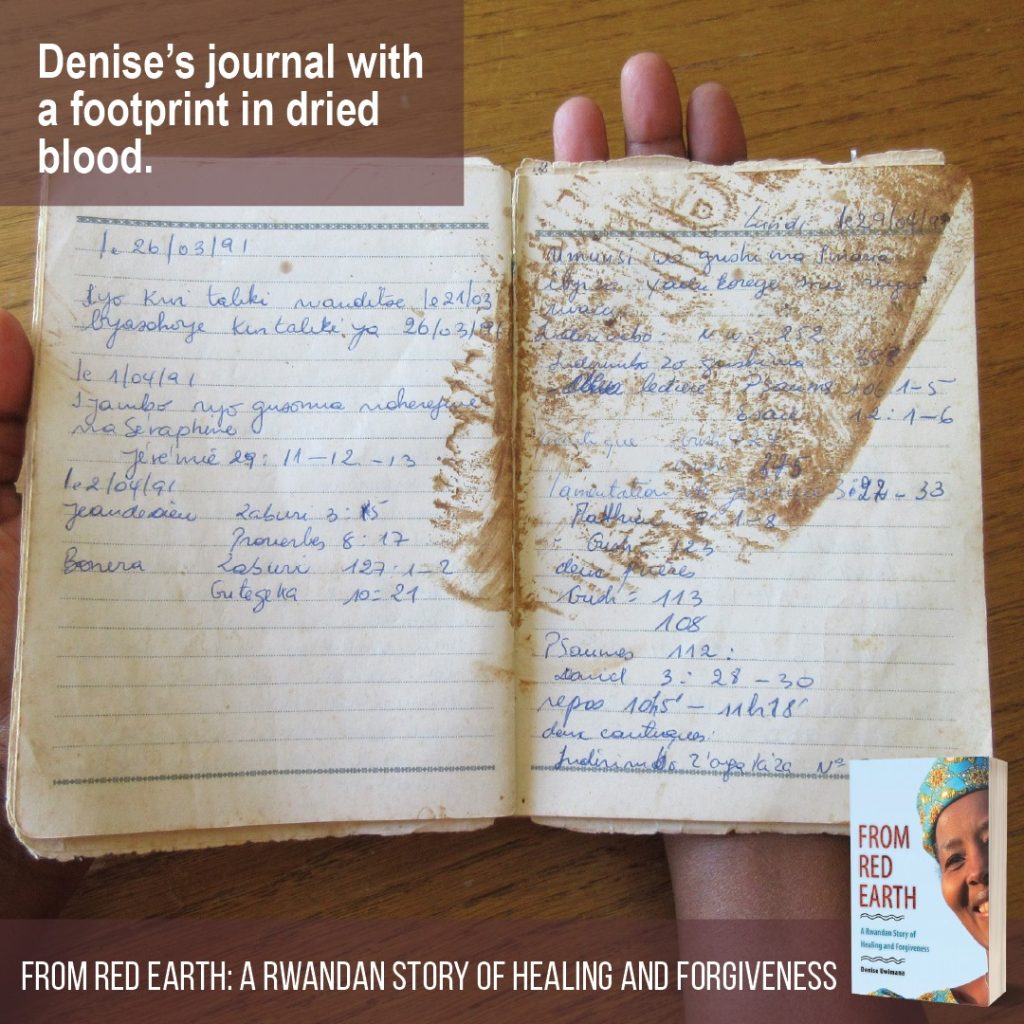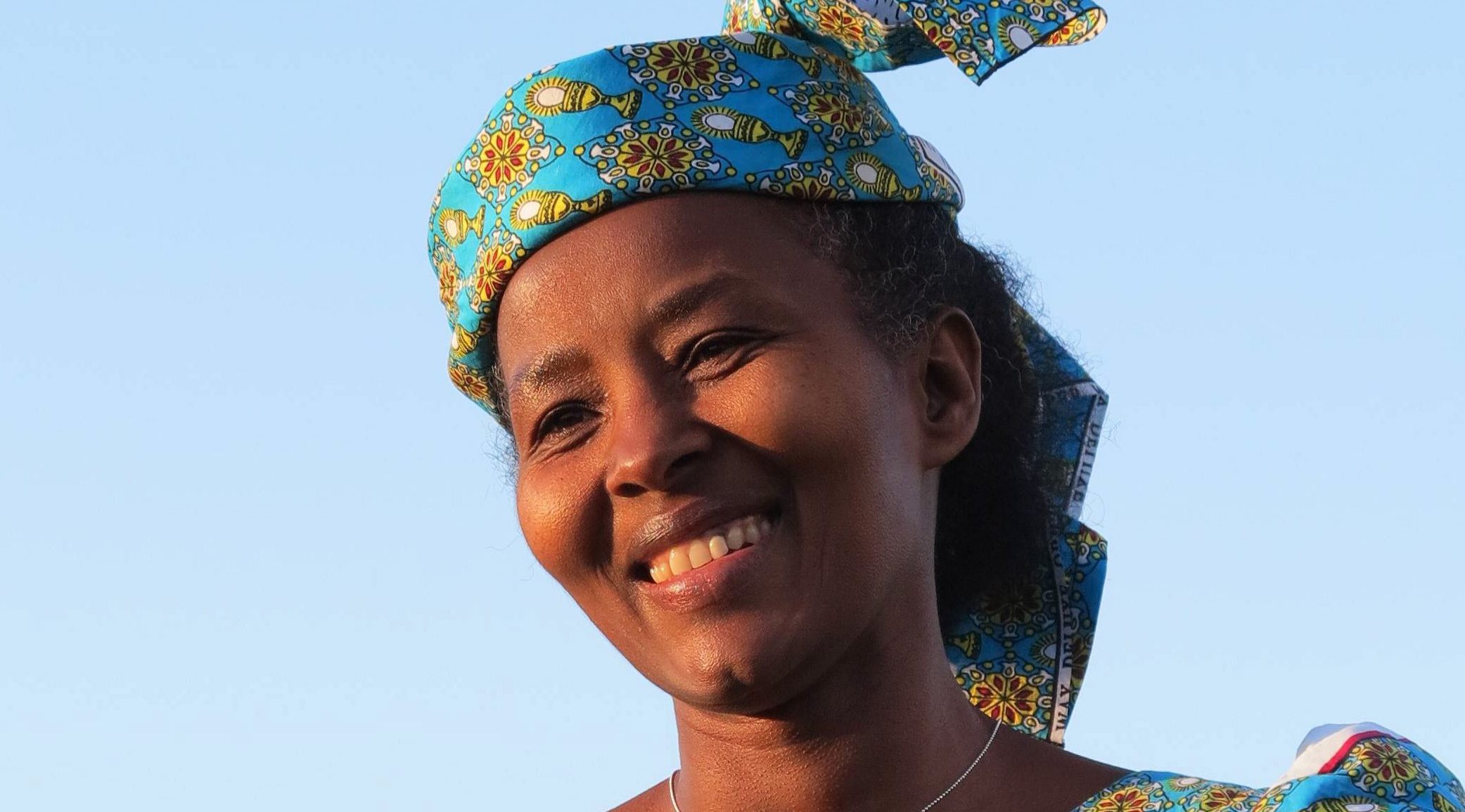The 1994 Rwanda Genocide was nothing short of a horror. Nearly a million Tutsi men, women and children lost their lives and an estimated 500,000 women were raped at the hands of Hutu militants. They despised the Tutsi majority and demonstrated the hate in a 100-day bloodthirsty campaign full of acrimony.
The ethnic war was fuelled by an ancient class system the Beglians implemented during colonial times. Tutsis turned out to be the well-to-do tribe while Hutus were described as poor and low income earners.
It was a recipe for disaster. Many lost loved ones, and it is said that the extent to how many people lost their lives remains uncertain.
At 29, now an author (From Red Earth) Denise Uwimana who was pregnant with her youngest son at the time, could have also lost her life in her home. Hutu militants found her, ransacked her home and killed her family. Now remarried, she lives a comfortable life in Kassel, Germany.
She shares her story.
“It was a good life, my husband and I used to travel to neighbouring countries; Burundi and Congo. For me as the one who came from Congo with another culture then to come to Rwanda it was totally different. Because when I came to Rwanda, I saw that people were not really free inside. There was some suspicion to say he is a Hutu or he is a tutsi.
But I had some neighbours from the Hutu side, and from the Tutsi side who were friends of ours.
When Charles and I married, we had many many good plans; how we would educate our children how we would raise our children, to show them love and respect each other. I did not want them to suffer what I suffered. But they were dreams that were suddenly cut.

“Suddenly the Hutus changed the fence, they became angry with us, although I didn’t understand why they would be. We were hearing the propaganda which was spoken on the radio saying that ‘all tutsis will be killed, they should be exterminated’.
I was afraid. The worry was my husband and at the time, I asked him to pray with me and we asked God for his mercy to protect us. The day we took time to pray was the day they came and took him to the prison. My husband was arrested because all intellectual Tutsis who were in the country were accused of working together against the government. They accused him because he was working in a mine and said he was going to explode the cement company. It was a false accusation.
Charles was charged with sabotage. His job meant he had access to explosives in the mines. And the authorities accused him of working with the RPF. Denise’s first child was a baby then. Six months later Charles was released from prison but he was fired from his job.
The atmosphere had become toxic. Hutus and Tutsis who were once neighbours, friends, colleagues, were now enemies.
Charles didn’t feel it was safe for him anymore so he fled to Kigali, 100 miles from Bugurama. Denise was heart broken.
Her husband would visit in secret when he could. He had to sneak in at night and leave before sunrise. Denise had a second child, and then a couple years later, she got pregnant with her third son, Grade de Dieu.
“Everywhere they were killing. When people saw me pregnant they told me “are you crazy?” How can you be pregnant in such a time. Physically I was not sick, I was healthy and I could also go to work. But inside me I had fear and worried how I would give birth when my husband is not there.”
On April 5 1994, Denise said goodbye to her husband for the last time.
“I remember that we were in our sleeping room and he told me, now I am going to leave. When he told me that I realised that I was about to have big problems I needed to face. I cried and cried. He embarrassed me and he couldn’t do anything because he must leave and he told me, ‘be quiet, I love you’, we separated and he went.”
Then April 16, nine days into the violence, the killing came to Denise’s door.

“On a Saturday, it was a sunny day and I woke up early morning as usual to listen to the news. I had a good neighbour. She was a Hutu and she used to come and do shopping for me. She came in the morning and I gave her money. She went to the market and when she came back, she looked worried and frazzled, telling me that in the market she saw my aunt Priscilla and her two boys and her father in-law, they were killed and they said they are coming to kill you and all Tutsi neighbours.
When I heard the news, my heart pained and I knew we were going to be killed. I went to warn my other Tutsi neigbours and family. Suddenly we heard a big crowd shouting, running, shooting and my cousins and children were around 10 people. In my house, I told them we were going to be killed. We went in the corridor. I did not know how the Hutu militia would attack us. I thought maybe they would throw grenades in the house. We lay down and then spoke about forgiveness, we prayed our last prayer. I told them for those who will be killed we will meet in heaven.

Then we hid all over the house. My first born went to the guest room of my house and I took refuge in the bathroom and when I went into the bathroom, I had my son Christian, well and healthy on my back. I had an inner struggle. I said God, you disappointed me. Why did you never tell me the truth that we will be killed? After that I lost all my fear and heard how they destroyed the door, they got inside. They didn’t know the layout of the house but a neighbour showed them where I slept. That’s why they came in and directly went to my bedroom. My neighbour said, this is the room of Denise.
They killed my brother-in-law, my cousins. One of them was under the bed and in the cupboard. They saw that the door of where I was was closed. They destroyed the door. But when they were destroying the door, I lost my fear and just waited to be killed.
They faced me but they did not kill me. They started dialogue with me and they asked me to give them money. I went into the bedroom, gave them. While I was giving them the money, one of them took the money and said, ‘don’t kill her she’s not dangerous.’ They took the money and split it and one Hutu militia asked why the others didn’t kill me. He asked the others to go and kill others instead.

I went to check on everyone. My first born was with the caretaker, alive. The one who was under the bed, Manasseh was also alive. He called to me, ‘come under the bed I am still alive’. So I crawled under the bed and lay in blood. Then I felt I must give birth and I said help me to get up from under the bed. I went to the washroom, I washed myself and I took other clothes and I went to ask for help from my neighbour who was a Hutu. First she was afraid to open the door but later she opened the door and there I gave birth to my child
I could not have any feeling at that time. I don’t know how to describe the situation because I am giving birth and they were killing. In my house they were plundering.The furniture was taken out, I wa shearing people crying saying, ‘Denise is still alive she must be killed’. I just took my baby in the sheets and went behind a door. Then I heard a voice of militia neighbours who know me. They came and asked people who were hidden in the house. The militia threw grenades in the house. The first did not explode. Behind the door I thought that for me it is better to die with a grenade than a machete.
The second one – nothing. It did not explode. So this is the miracle which happened. When it was ok to leave the house after the ordeal. I went to the clinic and stayed there for six weeks. I was too afraid.
I went back home and it was very very hard and sad. I couldn’t even go to sleep in my own bedroom bec there were big heaps of papers with blood on the wall. My child cried through the night. The neighbours even asked why my child was crying throughout the night.
Emotionally I cried and cried again, thinking for my people. It was really hard to pass through that hell of a genocidde.
We were dehumanised and our people were killed like flies.
After settling in her newfound home in Europe, Denise Uwimana set up the Iriba Shalom International, an organisation that provides material and spiritual help to genocide survivors just like her.
She released her book From Red Earth in 2019.














